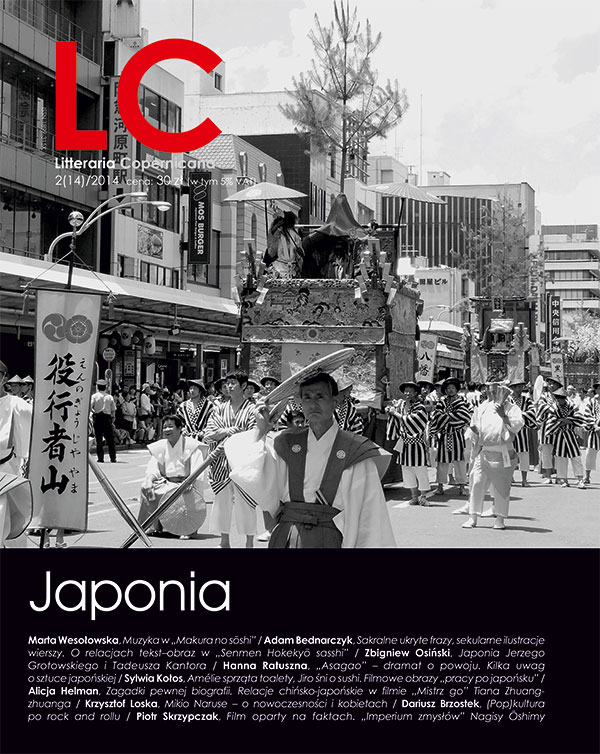POETRY OF THE EIGHTH JAPANESE IMPERIAL COLLECTION "SHINKOKIN WAKASHŪ" IN THE NŌ PLAYS ENTITLED "KAMO" AND "TEIKA" BY KOMPARU ZENCHIKU
DOI:
https://doi.org/10.12775/LC.2014.022Keywords
waka, nō, Komparu Zenchiku, Shinkokin wakashū, Fujiwara TeikaAbstract
It is undeniable that nō theater, a form of art that emerged in medieval Japan at the end of the 13th c., is a genre of drama embodying the performing arts. It is thus non-existent if it is only on a piece of paper. Despite this, written texts are the absolute basis for all nō dramas, since in noh there is little room for changing an original text which has been constructed in accordance with established composition principles and filled with religious symbolism and references to many earlier Japanese literary works. Numerous versions of extant nō manuscripts contain a great amount of allusions to the classical Japanese poetry genre waka. It is believed that as Zeami Motokiyo (1363?-1443?), one of the most well-known and respected nō playwrights and actors, was fond of the poetic style of the first imperial collection Kokin wakashū, as his son-in-law and successor, Komparu Zenchiku (1405-ok. 1470), was keen on the poetry of the eighth imperial collection Shinkokin wakashū. However, an analysis of poetic allusions in two noh plays by Zenchiku – Kamo and Teika – indicates that it might have been rather a poetic style of an early medieval poet Fujiwara Teika (1162-1241), one of the compilers of Shinkokinshū, that had perhaps been an object of fascination and inspiration for Komparu Zenchiku.
Downloads
Published
How to Cite
Issue
Section
Stats
Number of views and downloads: 790
Number of citations: 0



